Project Overview
Feynman UNO Flip is an educational card game that brings the complexities of particle physics to life through interactive gameplay. Originally developed as a physical card game for a university project in collaboration with fellow UCL students, lecturers, researchers, and UCL Business, this virtual version aims to make the game accessible to a broader audience.
Inspired by the interactive sessions held with GCSE and A-Level students, this online version allows players to learn particle physics concepts anywhere in the world.
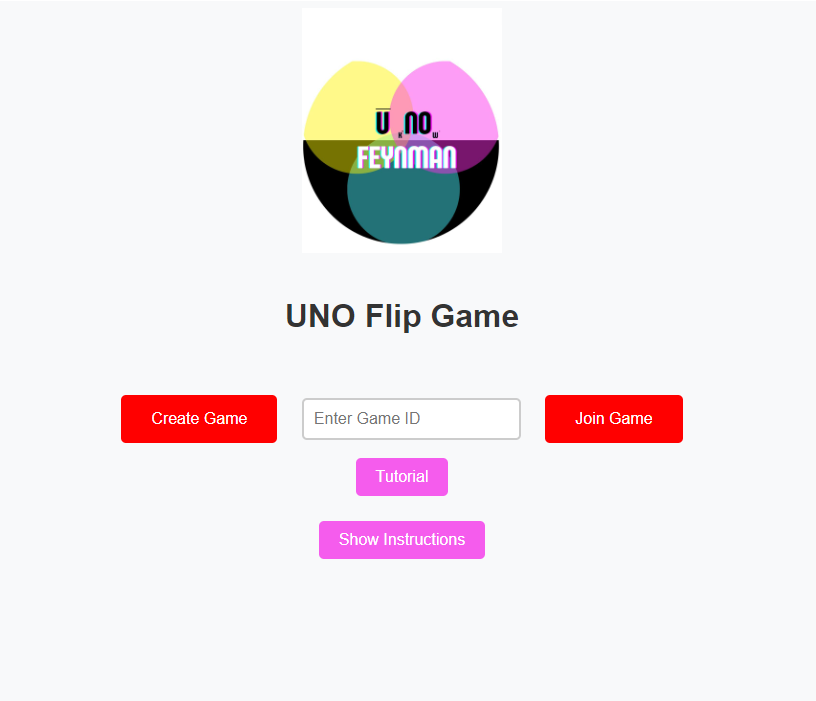
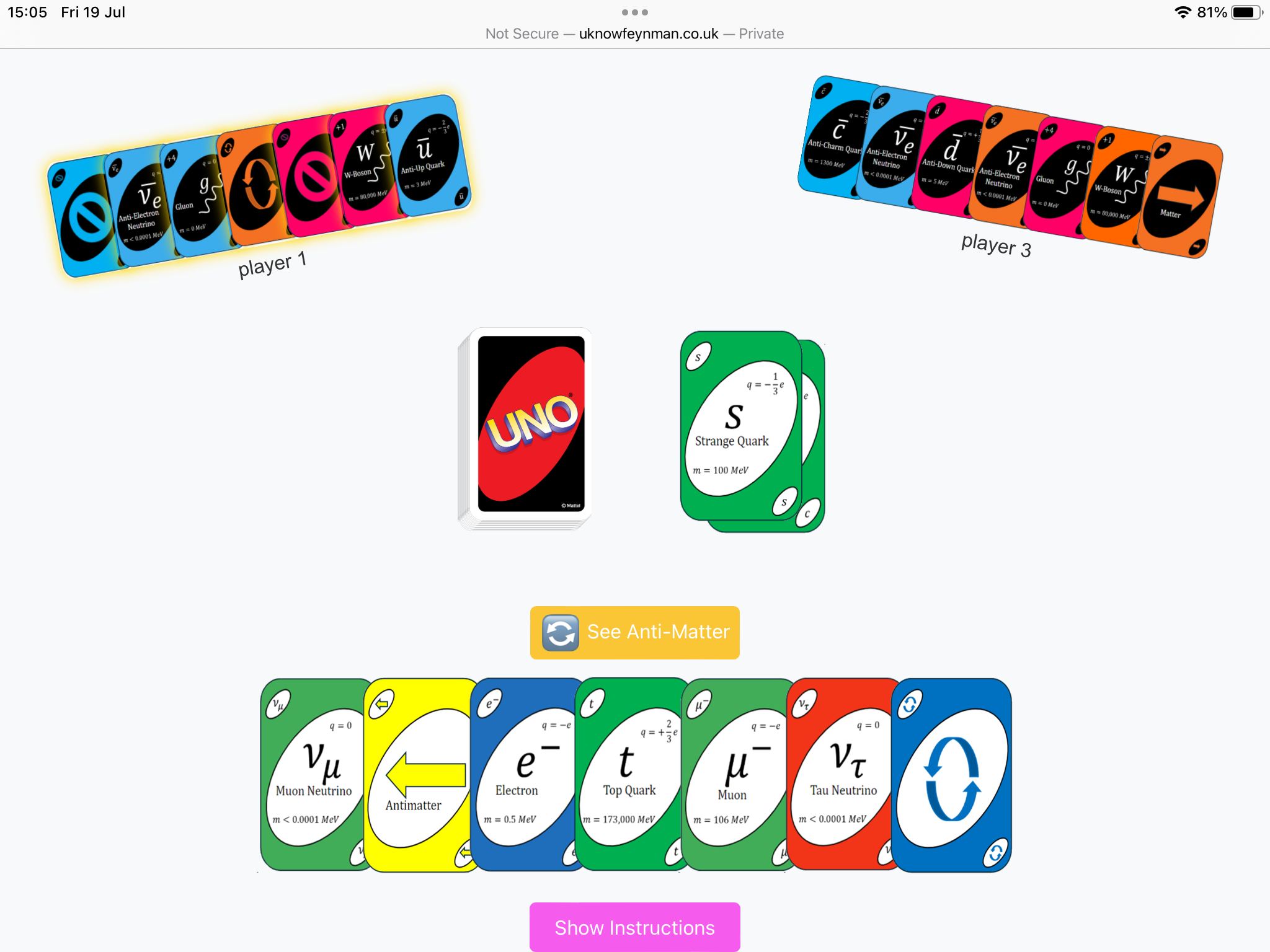
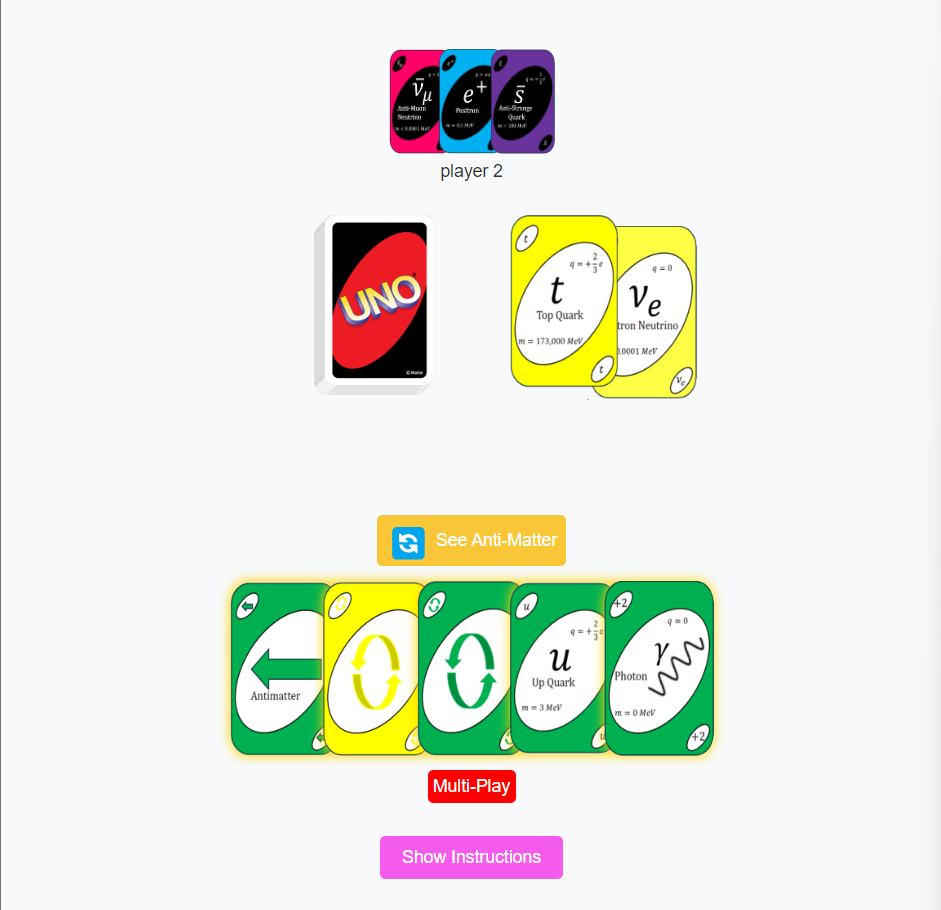
Features
- Educational Gameplay: Learn about particle physics and interactions through strategic card play.
- Multiplayer: Play with friends or students from anywhere in the world.
- Flip Mechanic: Switch between two sides of the cards, each representing different particle properties (matter and anit-matter).
- Customizable Game Settings: Admin controls allow for game management and customization.
Development History
The UKnowFeynman card game originated as a university group project at UCL, developed in collaboration with six other students and guided by professors Roger Johnson and Mark Fuller. Initially a simple group assignment, the project quickly gained momentum, evolving into a larger initiative with the active involvement of UCL professors.
Our team, with the support of UCL, organized multiple events to playtest the game and gather feedback from students at various academic levels, including GCSE, A-level, and degree programs. One such event was a poster session where we showcased the game to students and faculty, receiving overwhelmingly positive feedback.
Additionally, we presented another project I collaborated on—an interactive learning VR environment—during the poster session. More details on the VR project can be found here.
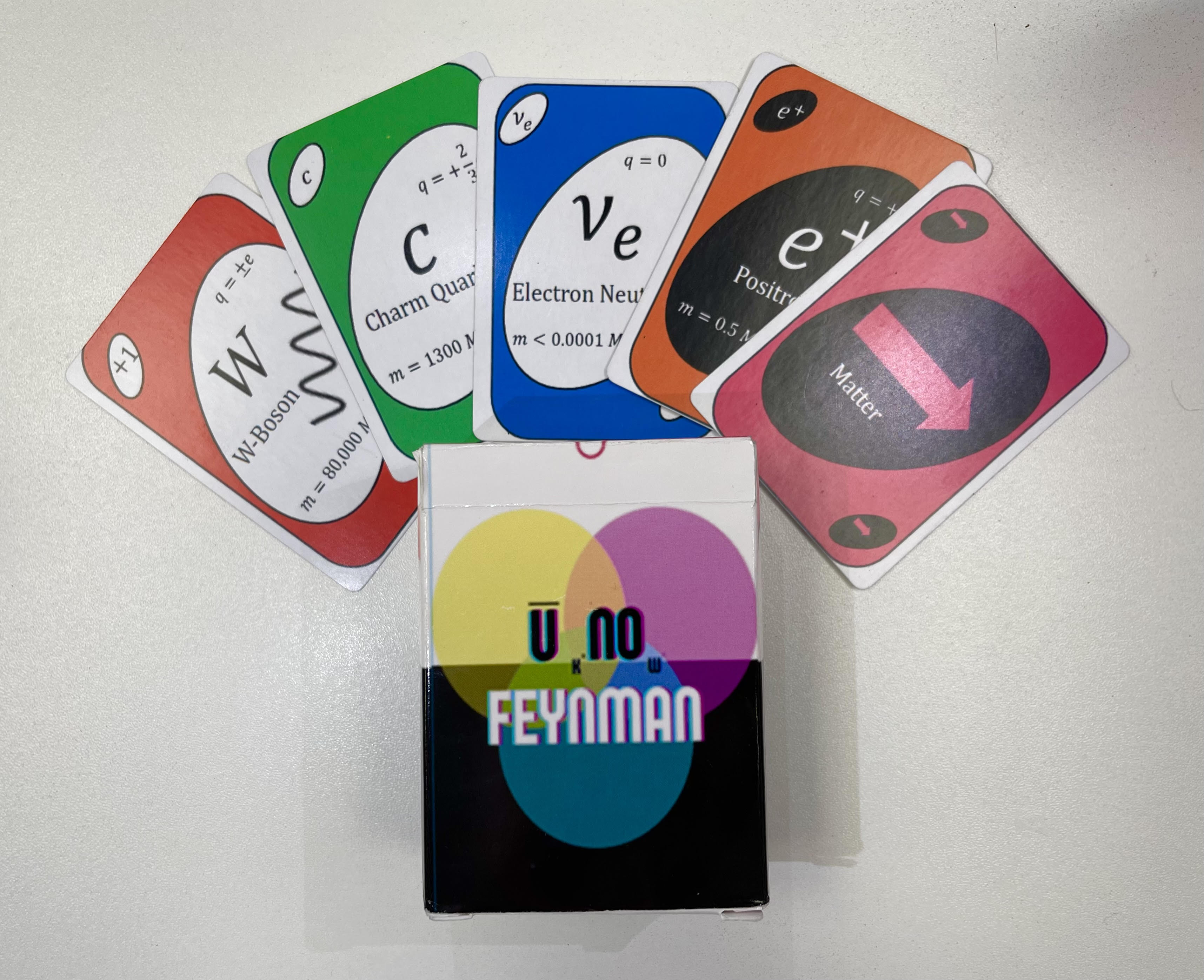
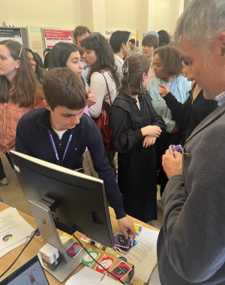
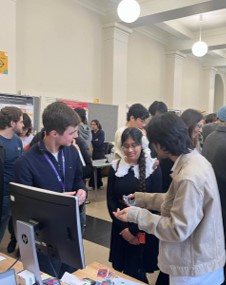
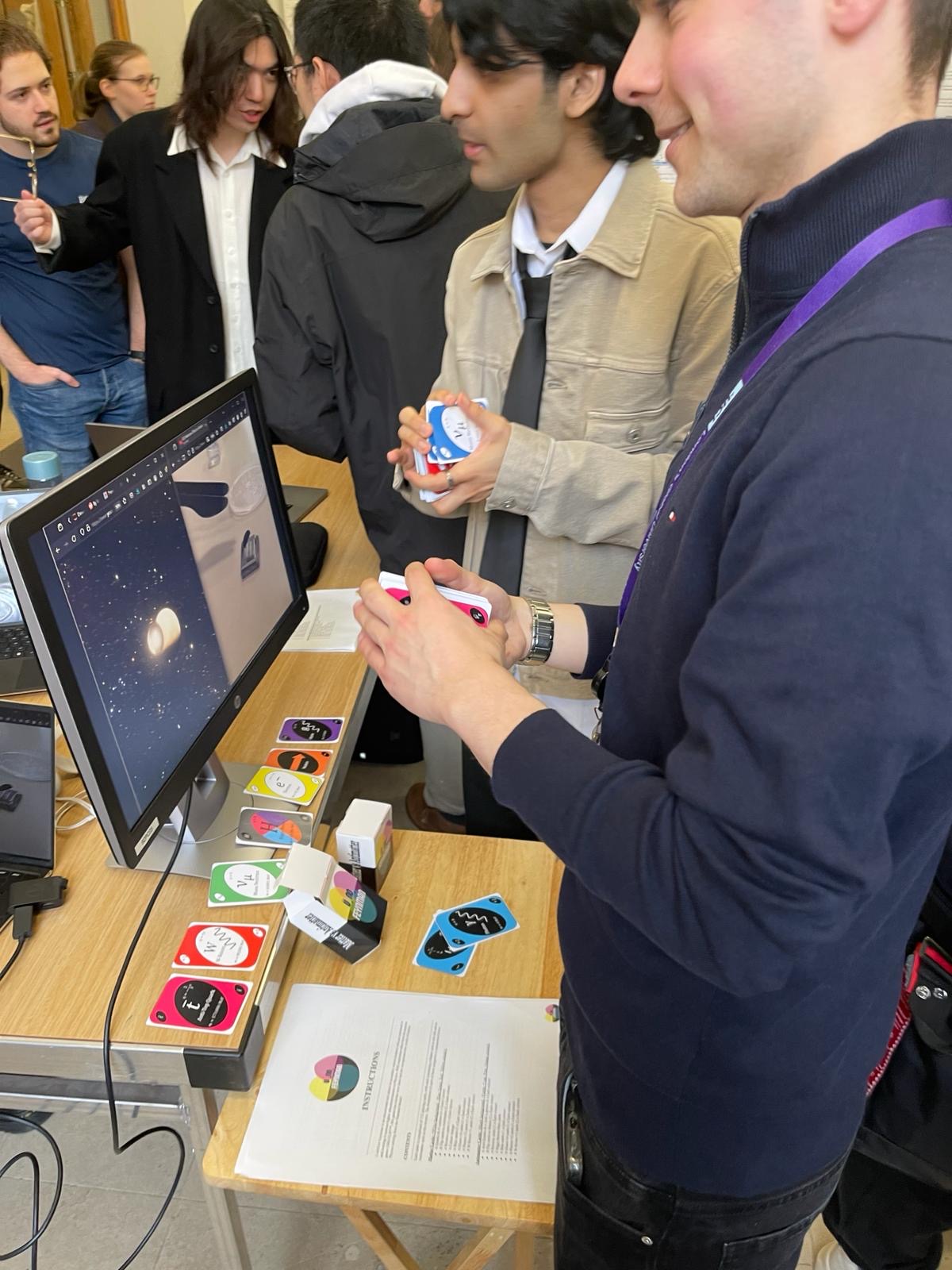
Another key event was the UCL Physics Masterclass for GCSE and A-level students, led by Dr. Ben Waugh and Prof Mark Fuller, where we again received overwhelmingly positive feedback. You can view the full feedback report here.
This feedback highlighted the potential of turning the card game into a virtual, multiplayer experience, which led to the development of this online version. While I undertook the coding independently, using assets and rules from the original physical game, this project has also garnered interest from UCL Business and the UCL Physics Department, paving the way for potential future developments and funding.
Game Rules
The game follows a set of unique rules inspired by particle physics principles:
- Color and Particle Matching: Players can play a card that matches the color or particle type of the current card.
- Boson Rule: When a boson card is played, the next card must be of the same class as the bottom card.
- Weak Boson/Photon Rule: Cards can be played as long as charge conservation holds, and the particle is not a boson.
- Gluon Rule: When a gluon is played, the next card must match the particle type exactly.
A full set of instructions can be seen here, or in the box below:
Usage
Playing the Game:
- Navigate to the game URL or run it locally.
- Create or join a game with a custom Game Id.
- Use the interface to draw cards, play cards, and flip the deck.
- Follow the in-game prompts and tutorials to understand the gameplay mechanics.
Admin Controls
Admins can manage games through the admin controls page. The admin interface includes features to:
- Reset games
- Remove inactive games
- Monitor active games and players

Future Features
(and some known issues)
- Interactive Tutorial: Step-by-step guide to help new players learn the rules and mechanics.
- Animations: Implement card animations for smoother gameplay.
- Flip Mechanic: Currently, flipping doesn't affect other players' views. This might become a feature.
- Card Highlighting: When flipping locally, the highlight on cards may not persist.
- Interactive Instructions: Improve in-game instructions.
- Card Positioning on iOS: Fix card positioning issues on iOS devices.
- Game Manager: Add a game manager feature for better control over game sessions.
- Button Edge Cases: Address edge cases related to button press timings.
- Playing and Drawing on a H card: Sometimes the first click when drawing on a Higgs card draws too many cards. Need to delay time spans between cards being drawn on a Higgs to signify what is happening.
- Game Resetting: Other players visually don't reset correctly - still shows other players as the same amount of cards as before, however this updates as soon as any action is taken (visual update not called when resetting game).
- Multi-Play Error Messages: Get an error message saying not your turn when trying multi-play. This should not happen, but does not affect gameplay.
Contributing
We welcome contributions to enhance the game. Please submit issues and pull requests to the repository. Before contributing, ensure you follow the code of conduct.
